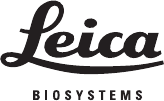
www.LeicaBiosystems.com
© Leica Biosystems Newcastle Ltd • NCL- Rev C
General Overview
Thyroid stimulating hormone (TSH or thyrotropin) is a glycoprotein produced in the thyrotrophs
of the anterior pituitary gland. TSH and TSH receptor (TSHR) are key proteins in the control of
thyroid function. TSH synthesis in the anterior pituitary is stimulated by thyrotropin-releasing
hormone (TRH) and inhibited by thyroid hormone in a classical endocrine negative-feedback
loop. TSH controls thyroid function upon its interaction with the G protein-coupled TSHR. TSH
binding to its receptor on thyroid cells lead to the stimulation of second messenger pathways
involving predominantly cAMP, inositol 1,4,5-triphosphate (IP3) and diacylglycerol (DAG),
ultimately resulting in the modulation of thyroidal gene expression. TSH also acts as a factor
protecting thyroid cells from apoptosis and plays a critical role in ontogeny.
General References
Fares F A, Levi F, Reznick A Z, et al.. Journal of Biological Chemistry. 276: 4543–4548 (2001).
Oda Y, Sanders J, Evans M, et al.. Thyroid. 10: 1051–1059 (2000).
Haugen B R, Pacini F, Reiners C, et al.. Journal of Clinical Endocrinology and Metabolism. 84:
3877–3885 (1999).
Beck-Peccoz P, Brucker-Davis F, Persani L, et al.. Endocrine Reviews. 17: 610–638 (1996).
Meier C A, Braverman L E, Ebner S A, et al.. Journal of Clinical Endocrinology and Metabolism.
78: 188–196 (1994).
Cole E S, Lee K, Lauziere K, et al.. Biotechnology. 11: 1014–1024 (1993).




